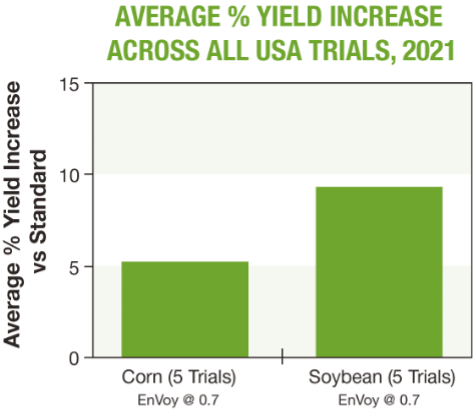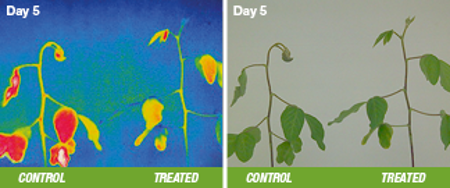
News
High prices won’t help farmers when tough growing conditions have left them with nothing to sell
How can farmers around the world deliver on wheat demand, while contending with tougher growing conditions? The potential of seaweed extracts in overcoming drought is key to this present-day problem.
May 15, 2022 Sponsored by Acadian Plant Health
Farming is a uniquely risky enterprise: farmers are at the mercy of the weather, interest rates, currency prices, government policies and fluctuations in the commodity markets. As wheat prices rose amid disruptions from the Russian invasion of Ukraine, farmers around the world were faced with solving how they could make up for the loss of grain, which normally accounts for one-quarter of the world’s annual wheat trade, amid unpredictable weather events.
Climate volatility from last season is still fresh in the minds of growers, with drought being a major cause of crop loss last year in many areas of the world. Yields were lower and soil conditions may not be conducive to bumper crops this year. This presents a significant challenge – we are in a year where farmers need to increase yields around the world to meet demand and ensure global food security. Yet there are few options to help farmers when climate events such as this occur.
As demand increases, is there a role for biostimulants?
Options such as improved wheat varieties and the addition of seaweed extract biostimulants could be a powerful tool to getting their crops through to harvest. Biostimulants have long been known to improve tolerance to harsh growing conditions such as drought, excess heat, chill, water logging and other plant stress conditions. What has long been undetermined however is exactly how these biostimulants work. Some farmers doubt the effectiveness of biostimulants and are often looking for tangible data as to what is activating in the plant and how it overcomes stressors.
“We knew our seaweed extracts were effective. We could see this in numerous field trials we have completed over the years. But truly understanding the mode of action, nature and types of effects was something we knew we needed to decipher,” says Dr. Holly Little, Director of Research and Development at Acadian Plant Health™.
With multiple years of scientific, peer-reviewed study, scientists at Acadian have been able to analyze the compounds within seaweed extracts. They were able to identify actives such as mannitol, betaines, proline and key polysaccharides all with the ability to help regulate the amount of water within cells to keep cells healthy during stressful environments. Plants were better able manage water, salinity, heat and chill stress.

What was even more interesting is we didn’t see these types of compounds or the same activity in all seaweed extracts we studied. We found that how we process the seaweed at Acadian liberates these compounds more so than other ways of processing seaweed extracts,” says Dr. Little. “So, it’s important that farmers know what they’re getting when they are looking at using biostimulants.”
Securing yield and productivity requires new tools
“As climate change continues to impact agriculture globally, farmers need to explore different options to ensure their crops make it to harvest. At this point in time, it’s not even about switching more of their acres to wheat to meet demand. It’s about just getting the wheat they intend to plant to make it through the climate extremes we’re now experiencing. Just getting a crop off with a good yield will be a success,” says Dr. Little.
Climate will largely continue to affect our food system through climate variability – which exacerbates an already struggling food supply with recent world events. Seaweed extract biostimulants can play a crucial role in agriculture, representing a powerful tool for growers to secure yield and productivity through seasons that may be sub-optimal moving forward.
Interested to learn more about our seaweed extracts and plant stressors? Read more on stress management here or contact us with any questions.